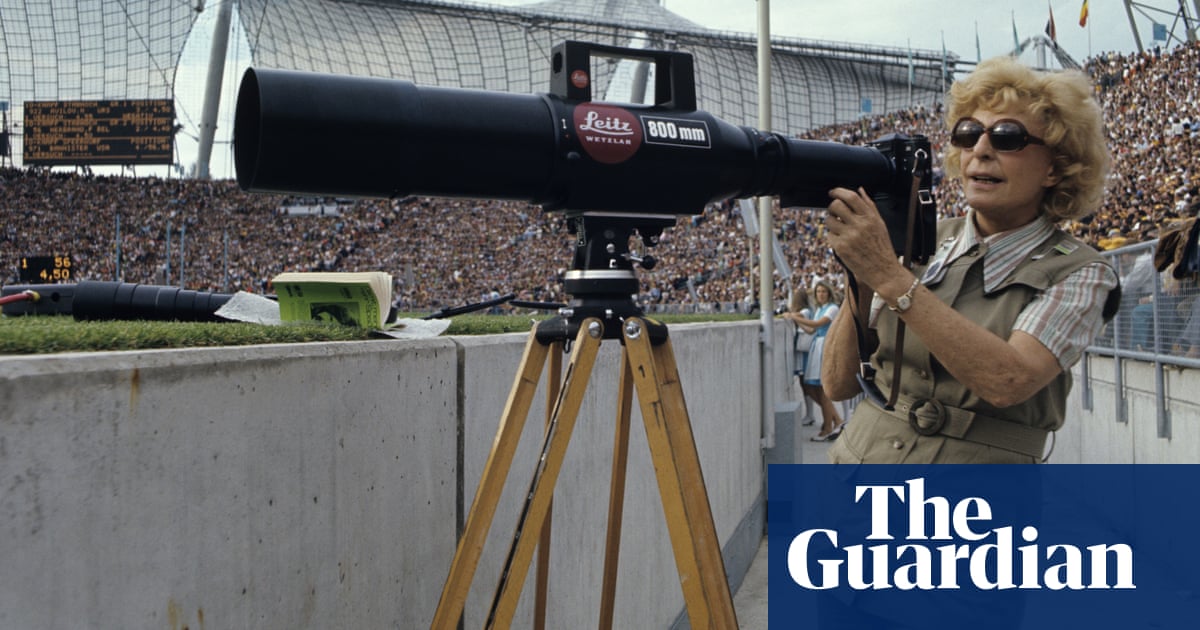A new documentary about the Nazis’ most popular filmmaker and leading propagandist, Leni Riefenstahl, suggests that she was a direct witness to murderous crimes committed by the Third Reich that she later claimed she knew nothing about, and may even have contributed to one herself.
The film “Riefenstahl,” which premieres at the Venice Film Festival in late August, also claims that the propagandist admired the party and its henchmen until her death at the age of 101 in 2003 – an attitude that contradicts her claim that she was not committed to the Nazi cause.
Written and directed by Andres Veiel, the documentary is the first to have full access to Riefenstahl’s estate and provides new details about claims that the filmmaker witnessed one of the first massacres of Polish Jews while briefly working as a war reporter.
Riefenstahl followed Adolf Hitler to Poland at the beginning of World War II in September 1939 and witnessed the atrocities in Końskie, a town in south-central Poland.
A 1952 letter found in her estate suggests that Riefenstahl may even have been indirectly responsible for the deaths. The letter, written by a lower-ranking officer to her ex-husband Peter Jacob, a major in the Sturmabteilung, refers to an army report on the massacre.
The letter states that Riefenstahl had “probably urged the Jews to be removed from the market place” “in advance of the filming of a scene on the market place”.
When a private relayed the remarks, the officer’s letter said, “they ended up sounding something like this: ‘Get rid of the Jews!'” It continued: “Because of this remark … some of the Polish Jews tried to escape and shots were fired.”
Veiel said: “If this statement is true, then Riefenstahl’s orders played a role in the deaths of the Jews in Końskie.” At the very least, he added, “their resulting feelings of guilt could explain their vehement denial of even having witnessed the crime.”
The documentary draws on some 30 hours of tape recordings of postwar telephone conversations with citizens, including former Nazis, who had offered their moral support to Riefenstahl in response to what they saw as attempts to smear them because of their close association with the Nazis. One unidentified caller said the “morality, decency and virtue” of the Nazi era would return, to which Riefenstahl replied, “Yes, the German people are predestined for that.”
The recordings complement some of the hundreds of hours of private video material that Riefenstahl’s partner Horst Kettner shot about the cozy domestic life in their idyllic lakeside villa in Pöcking, southwest of Munich.
Veiel’s film recounts how she was showered with praise by audiences, particularly after appearing on a late-night talk show in 1976 alongside Elfriede Kretschmer, a former member of the workers’ resistance movement against the Nazis. Riefenstahl won applause after speaking of the shock she felt when she learned of the Nazi atrocities only after the war and that her “wounds have still not healed” as Kretschmer looked on in disbelief.
Hundreds of letters later written to her in support, including words of thanks from a well-known Holocaust denier with messages such as, “Don’t let the pigs get you down,” were carefully catalogued by Riefenstahl.
In a letter to a long-time companion, Riefenstahl expresses her deep regret about the end of the Nazi era. She speaks of her “murdered ideals.”
Her telephone conversations with Hitler’s architect and armaments minister Albert Speer offer a brief insight into the peaceful post-war life of former members of the Nazi elite.
The two talk about the renovation of his house in the idyllic Allgäu mountains and exchange ideas about the kind of lectures and interviews they get. “Whenever I appear on television, I am accused of being partly to blame,” she complains to Speer, “for all the atrocities, the concentration camps.”
Pictures from their archive show the two hiking together in the Alps, dressed in snow boots and fashionable winter clothing.
The documentary also highlights incidents in Riefenstahl’s life that, according to Veiel, demonstrated her disregard for people whose physical condition did not correspond to the National Socialist ideals of strength and beauty that she had propagated in films such as “Triumph of the Will.”
Willy Zielke, an acclaimed filmmaker she hired to shoot the prologue to her film Olympia, which documented the 1936 Berlin Olympics, was committed to a psychiatric hospital for exhaustion and psychosis at the end of the project. He was subsequently forcibly sterilized under Nazi law in 1937. Although Riefenstahl knew of his plight, she did nothing for him, Veiel said.
Veiel and the film’s producer, Sandra Maischberger, argue that the view that Riefenstahl was a great artist who exploited Hitler’s desire to use her talents for her career should be reconsidered. However, they “expect a backlash” when the film premieres in Venice, as Riefenstahl is still highly regarded in the film world.
Maischberger, one of Germany’s best-known talk show hosts, says her interest in Riefenstahl began in 2002 when she interviewed the filmmaker on the occasion of her 100th birthday. “I left the house in Pöcking with far more questions than answers,” she says.
She said she and Veiel were both skeptical about whether they would find the truth about Riefenstahl’s life in the 700 boxes of material in her estate. The army of historians and film researchers quickly concluded that she had heavily edited the material.
Rather, they had proven the existence of an “activist” who remained convinced of the National Socialist ideology until the end of her life.
One telling detail they discovered was a casually scribbled note on a page of her calendar, Maischberger recalls. It read “Vote for NPD,” a reference to the post-war neo-Nazi party.

